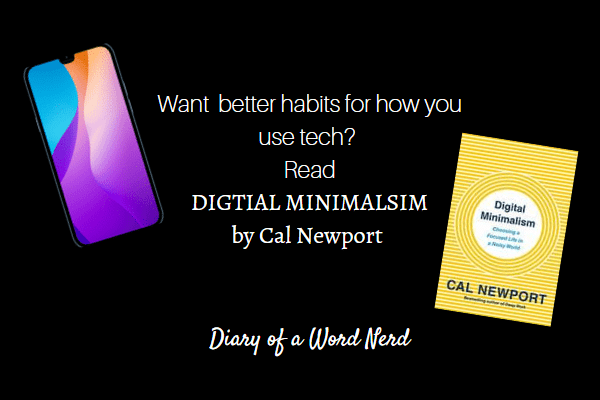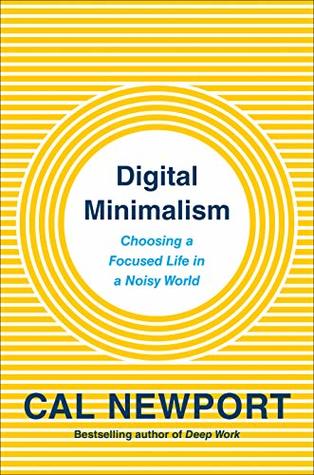Sometimes, when I’m sitting in a restaurant, I look around and see every person around me staring at a screen in their hand. It makes me seriously uncomfortable. Our devices are consuming us.
So when my oldest child read Digital Minimalism by Cal Newport this summer and touted its magic, I bought myself a copy. I’m very concerned about my use, my family’s use, our society’s use of technology. I worry that we all spend far too much time consuming and not enough time creating. Cal Newport, the author of Digital Minimalism, shares my concerns, and he’s put together some very interesting ideas about how to manage the amazing technology we have available to us these days.
The purpose of the book
Digital Minimalism discusses how we can change our habits to lead our best lives. Newport doesn’t condemn technology. Instead, he offers suggestions for how to use technology for maximum benefit while avoiding falling prey to the strategies of big tech companies who want our most valuable assets: time and attention.
After he makes the case against an unhealthy attachment to tech, Newport suggests the first step to adopting a lifestyle of Digital Minimalism is to do a Digital Declutter. This is basically a 30 day break from “optional tech” – anything that will not cause major chaos in your personal or professional life. Newport insists this declutter helps you see with clarity how you function without a particular app/device/ tool. The space can help you determine how important it really is.
After the declutter, you evaluate with intention which technologies to allow back into your routine and create plans for how to use them. For example, if you want to keep using Instagram, you create personal rules for how to use it on your terms so you don’t fall into the habit of mindlessly scrolling whenever you have a free moment. Then you can use that extra time for more important things. Like true connection with other people and creative hobbies.
Some other suggestions Newport makes include:
- long walks without media or technology
- leaving the phone at home sometimes, or at least in the car glove box
- consolidating texting
- reclaiming leisure time – investing the energy to learn/ nurture skills that help us create valuable things in the physical world
- remembering that convenience does not make something critically important to us
What I liked
Newport’s writing style is easy to read. He’s not preachy or rigid. He simply offers readers suggestions for how to evaluate their relationship with tech and establish healthy patterns that will work for them. He doesn’t promote an “all or nothing” approach. He never says, “You have to do this.” His style is more, “Hey, here’s something to think about.”
Applying Digital Minimalism
I started my Digital Declutter December 1st. It fits, since as a practicing Christian, I use the season of Advent for quiet, focus, and reflection. I’ve taken Facebook and Snapchat off my phone, and I’ve established certain times of day to check email and texts. I’m making big use of the new “Focus” functions on my iPhone. You can often hear me saying, “Hey Siri, turn on personal focus.” I’m in negotiations with my housemates (read: son and husband) about limiting screen time (including gaming and streaming) – perhaps setting aside two nights a week for “real world” leisure. You know, games, puzzles, maybe even crafting?
After the declutter, I’ll decide what to add back, and how to use it efficiently. I’ll also continually assess if the apps I have on my phone truly help me, and if so, how best to make them work for me, and not the other way around.
Have you read Digital Minimalism? Can you recommend other books about healthy habits for tech use?
Thanks for getting nerdy with me!



